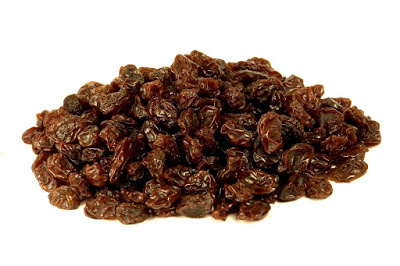As we say goodbye to another holiday season filled with rich meals and goodies, and get back to eating more regularly, it’s a good time to  consider the foods that are good and bad for our teeth. One of the most heavily contested of these foods is raisins, a staple snack for many children. But do raisins cause cavities?
consider the foods that are good and bad for our teeth. One of the most heavily contested of these foods is raisins, a staple snack for many children. But do raisins cause cavities?
In the past, it was fairly simple to categorize the types of foods that would be most likely to promote cavities – those that are especially sticky, and those rich in sugar. Raisins hit both of these classifications, and as such were considered to be cavity culprits.
However, Dr. Christine Wu led a study at the University Of Illinois College Of Dentistry in an attempt to better understand exactly how raisins affected oral health. In an article on Registered Dental Hygienist, Stacey Bell acknowledges that in Wu’s study “Even though raisins contained the highest sugar content of all foods tested (68% sugar), they were less acidogenic than bran cereal with raisins and added sugar. When raisins were added to bran, the acidity was lower than bran flakes alone, suggesting that raisins help enhance clearance of chewed bran particles from the teeth.”
Despite their bad reputation, Bell points out that raisins are a food that rank relatively low on the cariogenic (cavity causing) spectrum, and one that in many studies are known to combat plaque-causing bacteria buildup on the surface of teeth. Additionally, one of the worst things to be done after eating sugar-heavy foods involves letting the remnants linger on the teeth.
So, when it comes to transitioning back to your year-round diet, you might want to take a look at the hidden benefits of one of nature’s sweeter snacks. With Children’s Dental Awareness Month just around the corner, it’s important we impart these great habits early on.
